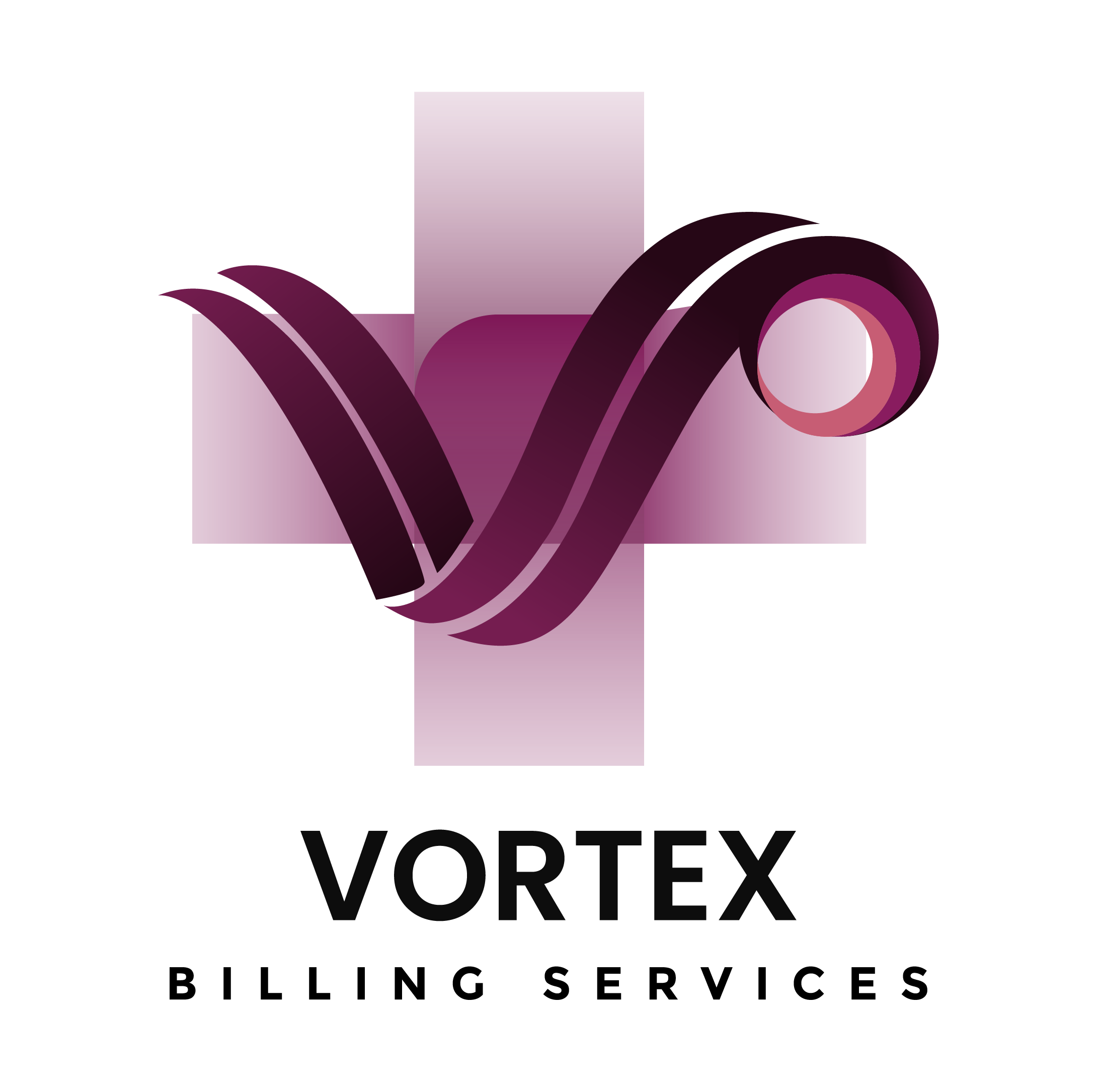The RCM Solution: Revolutionizing Healthcare Finance
Healthcare providers across the USA are facing growing challenges in managing administrative overhead, billing complexities, and compliance mandates. That’s where a powerful RCM solution—Revenue Cycle Management solution—comes into play. An RCM solution streamlines the entire billing process, improves cash flow, and ensures compliance. This article dives deep into how RCM solutions for healthcare can transform the financial health of your practice.
Whether you’re a small clinic, an expanding multi-specialty group, or a technology-oriented telemedicine practice, implementing an effective RCM solution can be the turning point for optimizing revenue and improving patient satisfaction. Let’s unpack how.
Understanding the Importance of RCM Solution in Modern Healthcare
What is RCM and Why It Matters
RCM, or Revenue Cycle Management, is the backbone of financial operations in healthcare. It refers to the end-to-end process of managing the financial transactions that stem from patient care—from appointment scheduling and insurance verification to final payment and reporting.
An RCM solution automates and optimizes this entire journey. Why is that important? Because healthcare billing isn’t just complicated—it’s error-prone and time-consuming. With thousands of insurance codes, compliance regulations, and billing formats, the chance of error is high. And every mistake costs you money.
By deploying a robust RCM solution, your practice can:
- Avoid claim denials due to coding errors
- Speed up reimbursements from payers
- Reduce patient confusion with clearer billing
- Ensure complete documentation for audits
In short, an RCM solution doesn’t just help you collect what you’re owed—it ensures you do so in a way that’s efficient, compliant, and scalable.
The Growing Demand for RCM Solutions in the USA
Over the past decade, RCM solutions have become non-negotiable for healthcare providers in the USA. The medical billing landscape is constantly evolving with new compliance regulations (like HIPAA and ICD-10), rising operational costs, and increasing patient volumes.
Small to mid-sized practices especially feel the pinch. They often lack the in-house expertise to manage billing, coding, and claims follow-ups. As a result, many are turning to outsourced or cloud-based RCM solutions that offer:
- Real-time claim tracking
- Integrated eligibility checks
- Automated payment posting
- Dashboards for performance metrics
The U.S. healthcare system processes billions of dollars annually. Yet, estimates show that providers lose up to 10% of their revenue due to billing inefficiencies. RCM solutions are helping providers reclaim that lost revenue—securely and intelligently.
Key Components of an Effective RCM Solution
A successful RCM solution is not just about billing software. It’s a full-service ecosystem that handles multiple touchpoints in the revenue cycle. Let’s break down the key components:
Patient Pre-Authorization and Eligibility Verification
The revenue cycle starts before the patient even steps into your clinic. Verifying insurance eligibility and obtaining necessary pre-authorizations are critical first steps. If missed, they result in denials or delayed payments.
An RCM solution automates this step by:
- Checking coverage in real time
- Notifying staff of missing information
- Generating pre-auth requests automatically
With an efficient RCM solution, front-desk staff don’t need to spend hours on phone calls with insurers. The software does the heavy lifting, reducing errors and speeding up intake.
Claims Submission and Management
This is the core of any RCM solution. A good system ensures that every claim:
- Is accurately coded with CPT/ICD-10 codes
- Matches payer requirements
- Is submitted electronically for faster processing
Top-tier RCM platforms include built-in scrubbers that flag incomplete claims before submission. This significantly reduces the number of rejections and accelerates the revenue cycle.
Moreover, once claims are submitted, the RCM software tracks them through the payer system, alerting you to any delays or follow-ups required.
Denial Management and Appeals Process
Denied claims are a revenue black hole for many practices. According to industry stats, over 20% of claims are initially denied—but up to 85% of those are preventable.
An effective RCM solution will:
- Analyze denial trends
- Offer automated resubmission tools
- Provide pre-filled appeal templates
This transforms denial management from a reactive chore to a proactive system, saving your practice both time and revenue.
Payment Posting and Revenue Tracking
Once payments come in from insurers or patients, an RCM solution ensures they’re correctly posted and reconciled. This includes:
- Matching payments to services
- Flagging underpayments or overpayments
- Updating patient balances
What’s more, you’ll gain access to real-time dashboards showing your total collections, AR days, net revenue, and other KPIs that matter.
Why Your Practice Needs an RCM Solution Today
Reduce Administrative Burden
Ask any front-desk or billing staff, and they’ll tell you—the administrative workload in healthcare is overwhelming. Between insurance calls, form filing, coding, and follow-ups, there’s little time left for patient interaction.
An RCM solution automates these repetitive tasks:
- It pulls patient data directly from EHR systems
- It auto-generates claims and submits them in bulk
- It tracks outstanding claims and sends alerts
With fewer manual steps, your team can focus on delivering great care, not fighting paperwork.
Improve Cash Flow and Revenue
Cash flow is the lifeblood of your practice. But when claims are denied or delayed, your revenue suffers. A smart RCM solution ensures money flows in faster by:
- Reducing denial rates
- Speeding up reimbursements
- Improving patient payment collections
Some clinics report a 20-30% boost in collections within months of implementing an RCM solution. That kind of impact can make the difference between growth and stagnation.
Enhance Compliance and Minimize Errors
Compliance is not optional—it’s a legal necessity. An RCM solution keeps you aligned with ever-changing regulations by:
- Auto-updating CPT, HCPCS, and ICD codes
- Flagging risky billing patterns
- Generating audit-ready reports
Mistakes in billing can lead to hefty fines and legal trouble. With the right RCM solution, you’ll stay compliant while maintaining a smooth workflow.
Choosing the Right RCM Partner for Your Healthcare Facility
Essential Features to Look for in an RCM Provider
Choosing the right RCM partner is like hiring the backbone of your financial health. Not all RCM solutions are created equal, and your decision should be guided by the specific needs of your practice. The right provider should not just “do billing”—they should act as an extension of your team.
Here’s what to look for in a reliable RCM partner:
- Specialization in healthcare: Look for a firm with proven experience in medical billing for your specific specialty—whether it’s primary care, cardiology, behavioral health, or another.
- Certified coders: Ensure the team includes certified medical coders (like CPC, CCS) who stay updated on changing guidelines.
- Real-time reporting: You should have 24/7 access to performance dashboards and analytics.
- Dedicated support: Choose a provider that assigns a dedicated account manager or support team to your practice.
- Proven results: Ask for case studies, KPIs, or references that prove their RCM solution delivers results.
Ultimately, the right RCM solution shouldn’t just be a tool—it should be a partnership built on trust, transparency, and long-term success.
Transparency, Compliance, and Technology Integration
In the modern medical marketplace, transparency and compliance are not just checkboxes—they’re strategic necessities. An RCM solution that hides fees, doesn’t clearly explain its workflows, or lacks proper documentation is a liability.
Transparency means:
- Clear SLAs (Service Level Agreements)
- Regular performance audits
- Easy access to claim status and financial reports
Compliance ensures:
- HIPAA-compliant data handling
- Full adherence to ICD-10, CPT, and CMS guidelines
- Timely updates as payer rules change
Technology integration is key too. Your RCM provider should easily connect with your existing Electronic Health Record (EHR) and Practice Management System (PMS). Seamless integration prevents data entry errors, reduces duplication, and improves efficiency.
If your RCM provider lacks these three pillars—transparency, compliance, and tech integration—it’s time to keep looking.
Cost vs. ROI – What to Expect
Let’s talk numbers. While some providers charge a flat monthly rate, others take a percentage of collections (typically 4–9%). At first glance, this might seem like an expense—but when properly implemented, a high-quality RCM solution pays for itself many times over.
Consider this ROI breakdown:
- Collection improvement: Most practices experience a 10–25% increase in collected revenue.
- Fewer denials: With optimized claim submission and scrubbers, denial rates drop by up to 40%.
- Reduced staffing costs: You can reallocate or downsize internal billing staff.
That said, watch for hidden fees—such as charges for eligibility checks, system integrations, or reporting tools. Always ask for a transparent pricing model with no surprises.
Industry Challenges Solved by Advanced RCM Solutions
Insurance Delays and Coding Issues
One of the biggest headaches for providers is insurance-related delays. Whether it’s missing patient data, incorrect codes, or authorization problems—these issues lead to weeks or even months of delayed payments.
With an RCM solution, these problems are addressed automatically:
- Eligibility checks are done in real-time
- Coding errors are flagged before submission
- Claim scrubbers prevent rejections
Plus, built-in tools ensure all documentation matches payer requirements, drastically cutting down on time spent reworking claims.
Poor Patient Collections and Billing Transparency
Another growing concern? Patient responsibility. As high-deductible plans become the norm, patients are now the largest payer group. Yet many practices struggle to collect what they’re owed because their billing process is confusing or outdated.
An RCM solution improves patient collections by:
- Offering online billing portals
- Sending automated reminders
- Providing transparent breakdowns of charges
Some platforms even integrate with SMS or email tools to send reminders before bills are due, which can dramatically boost on-time payments.
Managing Multi-Location or Expanding Practices
Growth is a great problem to have—but managing revenue across multiple locations introduces complexity. Different teams, systems, and processes often create inefficiencies.
A modern RCM solution centralizes and standardizes billing operations across all your locations. With cloud-based access, your team can manage everything from a single dashboard. It also provides:
- Unified financial reporting
- Location-specific revenue tracking
- User-level permissions to control access
This kind of scalability is crucial for growing practices who want to maintain efficiency while expanding operations.
Custom RCM Solutions for Different Healthcare Providers
Medical Clinics and Private Practices
Small and midsize clinics often lack the resources to maintain an in-house billing department. For them, a tailored RCM solution can be a game-changer.
Here’s how:
- Outsourcing billing reduces overhead
- Patient statements and collections are handled automatically
- Cash flow becomes more predictable
Plus, with regular reporting, clinic owners can monitor financial health and spot issues before they grow into bigger problems.
Large Hospitals and Healthcare Systems
Large systems require enterprise-level RCM capabilities, including multiple integration points, audit trails, and bulk claims processing. These organizations benefit most from AI-powered RCM solutions that offer:
- Predictive analytics for revenue forecasting
- Centralized dashboards for multi-department tracking
- Smart alerts for compliance breaches
Given the scale of operations, even a 2% improvement in collections can translate into millions of dollars annually.
Telehealth and Tech-Savvy Practices
Tech-first practices and telehealth providers have unique needs—they rely heavily on digital workflows and fast processing. An RCM solution built for them includes:
- Seamless EHR integrations
- Online scheduling and billing
- Mobile-friendly patient payment portals
In a remote care environment, automation is key. RCM solutions empower these practices to function efficiently without a physical office or front-desk team.
Integrating RCM Solution with Existing EHR Systems
Benefits of Seamless Integration
EHR and RCM should work hand-in-hand—not against each other. Integration allows both systems to “talk” to each other, so data flows automatically and accurately.
Benefits include:
- Fewer manual errors
- Reduced duplication of effort
- Faster claim submission cycles
When your billing system pulls directly from your clinical notes, documentation gaps vanish. This leads to cleaner claims and better reimbursements.
Avoiding Common Technical Pitfalls
Of course, integration comes with challenges. Practices often face:
- Data mismatches
- Slow syncing
- Poor customer support from EHR vendors
To avoid these, choose an RCM provider that has pre-built integrations with popular EHRs like:
- Athena health
- Kareo
- Dr. Chrono
- Eclinical Works
Also, always test the system with a small batch of claims before going live. It’ll help you catch bugs early and ensure a smooth transition.
Legal and Compliance Standards in the USA
HIPAA, ICD-10, and Medicare Requirements
In the United States, healthcare providers must operate under strict legal frameworks that protect patient data and ensure accurate reporting. Failing to comply can lead to hefty fines, license issues, and reputational damage. This is where a reliable RCM solution can be a legal lifesaver.
Here’s how top-tier RCM systems support compliance:
- HIPAA Compliance: All patient data processed through an RCM solution must be encrypted, access-controlled, and audited. Secure login credentials, data storage, and communication protocols are non-negotiable.
- ICD-10 Accuracy: The U.S. uses ICD-10 for medical coding, which includes thousands of diagnosis codes. An RCM solution automatically updates these codes and ensures correct usage based on your specialty.
- Medicare/Medicaid Documentation: Medicare billing is complex. It requires detailed documentation, time-based coding for certain services, and frequent reporting. A good RCM solution ensures every T crossed and I dotted, minimizing the chance of rejected claims or audits.
Compliance isn’t just a checkbox—it’s a constantly moving target. With a smart RCM system, your practice stays ahead of updates, flags inconsistencies, and always remains audit-ready.
How RCM Ensures Adherence to Federal Guidelines
Beyond HIPAA and ICD, there are many other regulatory standards that RCM solutions must support, such as:
- MACRA (Medicare Access and CHIP Reauthorization Act)
- MIPS (Merit-based Incentive Payment System)
- CMS (Centers for Medicare & Medicaid Services) reporting
Modern RCM platforms often include compliance modules that:
- Track documentation requirements in real time
- Alert users to gaps in coding or time-tracking
- Generate reports for MIPS scoring or CMS auditing
With these tools in place, practices can avoid compliance breaches and maximize incentives or reimbursements.
Measuring the Success of Your RCM Implementation
KPIs and Benchmarks That Matter
So, how do you know if your RCM solution is actually delivering value? The answer lies in the numbers. By tracking the right Key Performance Indicators (KPIs), you’ll get a clear picture of performance, progress, and profitability.
Important KPIs include:
- Clean Claim Rate (CCR): Measures how many claims pass through without rework. Aim for 95% or higher.
- Days in Accounts Receivable (AR): Shorter is better—ideally under 40 days.
- Denial Rate: The percentage of claims denied initially. Keep it below 5%.
- Net Collection Rate: Measures how much of your collectible revenue you’re actually collecting. 95–99% is excellent.
A quality RCM solution will display these KPIs in real-time dashboards, helping you adjust processes before problems snowball.
Data Reporting and Predictive Analytics
Basic reporting is good. Predictive analytics is better. Advanced RCM platforms now include AI-driven tools that forecast trends and offer decision-making support.
For example:
- If denials rise in a certain insurance group, you’ll get an alert.
- If patient no-shows impact revenue, your system can recommend follow-up workflows.
- If revenue is predicted to dip in a specific month, you can plan ahead.
This is the power of data-driven management. Your RCM solution becomes more than a billing tool—it becomes a strategic advisor.
Future Trends in RCM Solutions
AI and Automation in Revenue Cycle Management
AI is changing the game in nearly every industry—and medical billing is no exception. The best RCM solutions today already use machine learning to:
- Auto-correct coding errors
- Predict claim denials
- Suggest optimized charge entries
Future-forward systems will continue evolving with natural language processing (NLP) to extract clinical data directly from notes and voice recordings. This will eliminate manual coding and cut billing times drastically.
Plus, bots and automated workflows will handle repetitive tasks like:
- Eligibility checks
- Statement generation
- Patient follow-ups
The result? A smoother, faster, more reliable billing process—and more time for your team to focus on care.
Real-Time Eligibility and Mobile Access
Healthcare is going mobile—and your billing system should too. Providers now expect access to RCM dashboards, claims status, and revenue reports from smartphones or tablets.
Patients also demand mobile billing options, such as:
- SMS payment links
- App-based statement tracking
- Secure online portals
Modern RCM solutions provide real-time insurance verification during appointment scheduling, reducing friction and surprises for both staff and patients. The future of revenue cycle management is instant, intuitive, and on-the-go.
Case Studies: Real Success Stories from US Clinics
Small Practice That Doubled Their Collections
Dr. Lisa Morgan, a family medicine provider in rural Texas, was drowning in delayed payments and denied claims. Her small team struggled with manual billing and inconsistent follow-ups. After implementing an RCM solution tailored for small practices, her collections increased by 110% in just six months.
How it happened:
- The RCM platform automated all claims submission and rejection follow-up.
- Real-time eligibility verification reduced no-pays.
- Monthly reporting helped Lisa optimize scheduling and staff utilization.
What’s more, her patient satisfaction improved, as the billing process became clearer and more predictable.
Large Hospital That Reduced Denials by 40%
A regional hospital in Illinois, operating across three locations, partnered with a cloud-based RCM provider. Their major issue? A 15% denial rate and a 60-day AR cycle.
Within four months:
- Denials dropped to 9%
- Days in AR fell to 34
- Their billing team became 35% more productive
This success came from centralized billing workflows, AI claim scrubbing, and integrated reporting—all features of a strong RCM solution.
These stories prove that no matter the size of your practice, a smart billing system can radically improve your bottom line.
How to Switch from In-House Billing to a Professional RCM Solution
Transitioning Steps and Timeline
Switching to an external RCM solution doesn’t have to be disruptive. In fact, most transitions can happen smoothly within 30–90 days when handled properly.
Here’s a typical transition timeline:
- Assessment (1–2 weeks): RCM provider reviews your current processes, software, and KPIs.
- Setup & Integration (2–4 weeks): System setup, API integration with EHR, and data migration begin.
- Testing (1–2 weeks): Small batches of claims are tested for accuracy and flow.
- Training & Go Live (1 week): Staff are trained, and full-volume billing goes live.
Communication is key. A good RCM provider will offer hands-on support through every step, minimizing downtime.
Training Your Staff and Onboarding
Your clinical team doesn’t need to become billing experts—but they should understand the new system. Top RCM partners offer:
- Live training webinars
- On-demand tutorials
- Dedicated account managers
Train front-desk staff on eligibility tools and billing alerts. Educate providers on documentation best practices that support optimal billing. When everyone knows their role, the system runs like a well-oiled machine.
Costs Associated with RCM Solutions
Pricing Models Explained
The cost of an RCM solution varies widely based on your practice size, volume of claims, specialty, and whether you choose a fully outsourced or hybrid model. Generally, RCM services follow these pricing structures:
- Percentage of Collections: The most common model, where providers charge 4% to 9% of total collected revenue.
- Flat Monthly Fee: Ideal for predictable volumes—good for smaller practices with fewer claims.
- Per Claim/Encounter Fee: A la carte model that charges per individual claim processed.
Each model comes with pros and cons. For example, percentage-based billing aligns the RCM provider’s success with yours—but might be more expensive as your collections grow. Meanwhile, flat fees are predictable, but you’ll pay the same whether your claims succeed or not.
Be clear about which services are included. Some vendors bundle patient statements, call center support, eligibility checks, and denial management, while others charge extra.
Hidden Fees and Budget Planning
Many practices get caught off guard by hidden costs that weren’t in the initial agreement. Be sure to ask the following:
- Are training and onboarding included?
- What’s the cost for EHR integration?
- Do you charge for each rejection or denial resubmission?
- Is there a setup fee?
Budgeting for an RCM solution requires looking at the full picture—not just the base rate. Consider the cost vs. ROI: how much revenue will the RCM provider help you recover? If their services can increase collections by 20%, that’s an excellent return—even if fees are on the higher side.
Questions to Ask Before Hiring an RCM Solution Provider
Red Flags and Green Lights
Choosing an RCM provider is a big decision. To ensure you make the right call, ask these essential questions during your discovery calls:
- How do you handle denials and follow-ups?
- Do you support specialty-specific coding and billing?
- What KPIs do you report, and how often?
- What experience do you have with practices my size?
- How do you train my staff and provide support?
Green lights include:
- A proactive support team
- Transparent billing practices
- Cloud-based, HIPAA-compliant platforms
- Custom dashboards and performance reporting
Red flags to avoid:
- Lack of coding certifications (CPC, CCS, etc.)
- No dedicated account manager
- Long contract lock-ins without a trial period
- No references or case studies
A good RCM solution provider should feel like a partner, not just a vendor. If they seem vague, avoid accountability, or push hard for long-term contracts without proving value—move on.
Customization Options and SLAs
Each practice has unique workflows, and your RCM solution should be flexible enough to adapt. Ask about:
- Custom workflows for multi-specialty practices
- Integration with your EHR or patient portal
- SLAs (Service Level Agreements) around response times, claim submission, and follow-up
Look for providers that offer tiered service options and are willing to build around your needs. Flexibility is critical, especially for growing or multi-location practices.
Conclusion: Is an RCM Solution the Right Fit for Your Practice?
If you’re a healthcare provider in the USA, the short answer is yes—an RCM solution is not just helpful; it’s essential. Medical billing is no longer just a back-office task. It’s a critical function that directly impacts patient satisfaction, cash flow, and compliance.
An effective RCM solution:
- Automates complex billing processes
- Improves revenue by reducing denials and speeding payments
- Ensures compliance with HIPAA, Medicare, and private payer rules
- Frees up your staff to focus more on patient care
- Offers transparency, scalability, and data-driven decision-making
Whether you’re running a solo clinic or a multi-location system, investing in the right RCM partner can transform your financial operations. It’s not about outsourcing—it’s about upgrading to a smarter, faster, and more reliable revenue process.
So, if your current billing system is outdated, overworked, or just not delivering results, now’s the time to explore the benefits of modern RCM solutions for healthcare.



